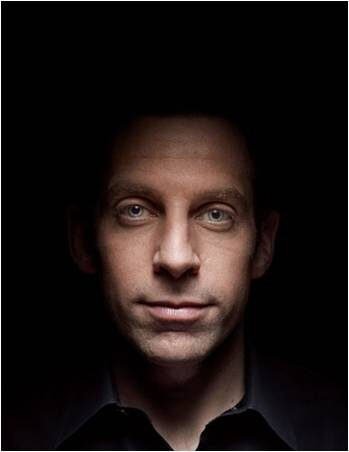We continue considering that Sam Harris and Jerry Coyne deny free will: find the entire series here.
What could be the parting salvo of Coyne’s Atheistic, materialistic, mechanistic, reductionistic worldview? With a Carl Saganesque cosmos sized non-sequitur:
…our evolved brains…free choice, and even the idea of “me” are but convincing illusions fashioned by natural selection. Further, by losing free will we gain empathy, for we realize that in the end all of us are victims of circumstance — of the genes we’re bequeathed and the environments we encounter. With that under our belts, we can go about building a kinder world. Sure sounds nice but the non-sequitur is that there is nothing in his view that leads, logically or biologically, to that conclusion as one could just as easily state:
…our evolved brains…free choice, and even the idea of “me” are but convincing illusions fashioned by natural selection. Further, by losing free will we lose empathy, for we realize that in the end all of us are victims of circumstance — of the genes we’re bequeathed and the environments we encounter. With that under our belts, we can go about building iron fisted empires and realize that we are not responsible even for our own actions as they are determined.

You see, he also wrote:
…the words and deeds of other people are simply environmental influences that can affect our brain molecules. That’s how love begins. Why not “That’s how love ends”? Perhaps, Sam Harris could write a book titled, “The End of Love,” Richard Dawkins, “The Love Delusion,” etc. True love requires choice but on the Atheist view, “What’s love got to do with it?” And “What is love?” No, it is not, “Baby don’t hurt me, don’t hurt me, no more.” Here are some examples of Atheists in love (or, on love):
Isaac Asimov, “Testicular hormones are why I love you.”
Richard Dawkins reduced love to a “manifestation of brain stuff.”
Michael Ruse noted, “If all future relationships could be done purely on a cost-benefit analysis, then we would probably be better off without morality. Why fall on a grenade to save your fellows when it hardly pays off for you?”
[see Did Isaac Asimov “Tell me why”?] But why this somewhat of an aside from Coyne? Because the issue of free will is inexorably tied to the issue of ethics. As usual, Atheists follow the yellow brick road down which Darwinism takes them. Once they get far enough, they find that they can no longer leave that broad road because they turn it into more than a theory that is supposed to be about biology. Many Atheists turn Darwinism and science in general into worldviews. Yet, when they see just where Darwinism leads they want to stay on the road while also wanting to make a bit of a U-turn but they do not and cannot and so they end up committing non-sequiturs, category mistakes and basically the stuff of which cognitive dissonance is made.
In other words, they want to hold to Atheism, Darwinism, reductionism, materialism, mechanism (call it what you will), they see the dark bottomless pit into which it leads and so they toss out some comment or another about getting along despite.
Now to some particular statements by Sam Harris from his article Free Will (And Why You Still Don’t Have It):
…you tend to feel that you are the source of your own thoughts and actions. You decide what to do and not to do. You seem to be an agent acting of your own free will. The problem, however, is that this point of view cannot be reconciled with what we know about the human brain.
Then he offer the same scientific evidence as Jerry Coyne about portions of the brain lighting up before we are aware of making decisions, etc. Fortunately for Harris, he is involved in a science which consists of aspect that are soft enough to be malleable and which he can thus twist towards his biased ends. For example, via neuroscience we can tell when someone is dreaming but we cannot tell what the dream is. Also, there is much interpretation in neuroscience such as: Portion X of the brain lights up when… Portion X pertains to… Therefore, the lighting up means that…
It is as William M. Briggs notes whilst reviewing Sam Harris’ research “The Neural Correlates of Religious and Nonreligious Belief” (which was also reviewed by this Examiner here):
Ignore religion and answer this: do the brains of the affronted and angry operate differently in those heightened states of emotion than in those who are placid, smug, or contented?
Could it not be that the “emotion centers” of the brain light up for Christians in this experiment not because they are Christians but because they have just been repeatedly poked by a sharp rhetorical stick?
The “sharp rhetorical stick” refers to the questions posed during Harris’ pseudo-experiment.
~~~~~~~~~~~~~~~~~~~~~~~~
A plea: I have to pay for server usage and have made all content on this website free and always will. I support my family on one income and do research, writing, videos, etc. as a hobby. If you can even spare $1.00 as a donation, please do so: it may not seem like much but if each person reading this would do so, even every now and then, it would add up and really, really help out. Here is my donate/paypal page.
Due to robo-spaming, I had to close the comment sections. However, you can comment on my Twitter page, on my Facebook page and/or on my Google+ page.
Twitter: #SamHarris, #JerryCoyne, #Atheism
Facebook: #SamHarris, #JerryCoyne, #Atheism
